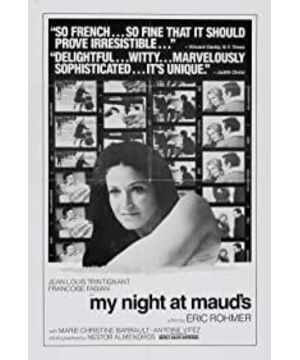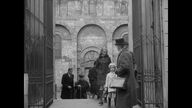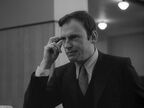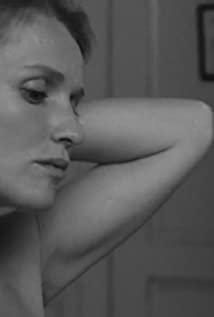In "One Night at the Mude Family", the male protagonist is a Catholic with preconceived religious concepts. He is conservative and stubborn and pedantic and loyal to his beliefs. From his point of view, marrying a Goldilocks who is also a Catholic, It is his ideal ending to love and marriage. He was not unmoved by Maud's temptation, but was imprisoned in his own inner morality. However, his conception only strengthened a wall covered with religious morality for his love and marriage. Therefore, I also think that the male protagonist does not love his wife, his starting point is more because she conforms to the so-called religious view in the male protagonist's heart. He adheres to his concept and misses the one-night affair with Maud, but the next day goes against his own moral values and starts a conversation with the girl who fits his ideal, even though he later finds out that his wife is actually Maud's ex-husband's mistress, for the sake of To maintain his marriage morality, he chose to be nothing, just as he said that night at Maud's house: since he is married, he will not divorce. There's actually a kind of self-deception that seems both pathetic and ironic. He supports the ascetic practice that some people say, but also opposes hedonism. The debate between the three of them in the night of Mude's house, and his repeated anger, it is not difficult to see the deep-rooted and inflated male protagonist's pedantic concept.
I have been obsessed with Maud's morality. I knew that at the end, the two met again and talked about their own situation, and the remarriage was about to break down. At this time, I felt that her morality was exactly the opposite of the male lead's stubbornness and conservativeness. She is sexy and beautiful. , but also loose at will, even if the years make her more charming.
And the wife of the male lead, the blonde Catholic, a woman who shares the same religious concept as the male lead, her behavior is just a satire and refutation of the male lead.
Finally, let me talk about my personal opinion, in fact, I am not very good. I can't say what's right or wrong when I understand the movie. Everyone has their own morality. However, this concept should be based on relativity, instead of stubbornly believing that it is not Concept, but a kind of pedantic self-emphasis. Like the male protagonist, he follows his own moral values tragically. Even if he knows there is a problem, he still insists stubbornly. In the end, he deceives himself and uses lies to perfect his mistakes. It is the most immoral. What's wrong is to use "morality" to fool one's own morality.
View more about My Night at Maud's reviews










